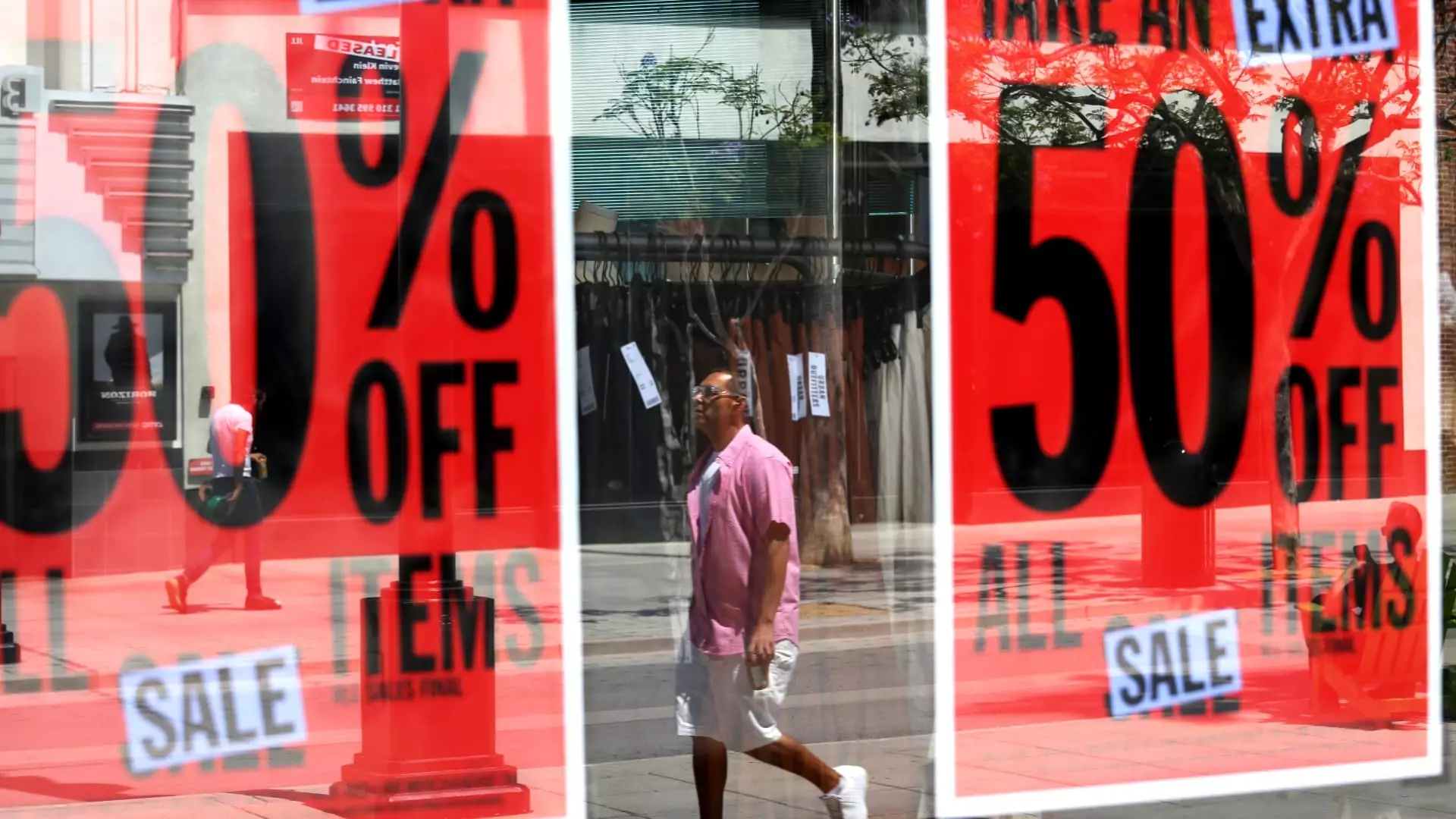In the wake of Donald Trump’s trade policies, particularly the imposition of tariffs on various imported goods, retailers are observing an uncomfortable yet visible shift in consumer behavior. The fears surrounding a decline in consumer spending are amplified by mounting uncertainty over the future prices of products. Retailers are now engaging in a controversial marketing strategy, capitalizing on this anxiety by promoting urgent sales that leverage the specter of impending price hikes due to tariffs. This approach reveals not just a dire economic atmosphere but also a troubling willingness among businesses to manipulate consumer fears for profit.
With Trump’s trade war looming over them, many brands have launched “pre-tariff” sales, urging consumers to purchase before tariffs inflate costs. They capitalize on the anxiety these tariffs create, flashing messages of urgency that manipulate consumer psychology. Interestingly, private brands, like Beis and Bare Necessities, have implemented eye-catching promotions. They entice customers with discounts, framing these offers as a way to beat the supposed financial repercussions of tariffs. This isn’t merely a marketing tactic; it reflects a desperate strategy aimed at surviving in an unpredictable consumer landscape. It underscores a grim reality where companies treat their merchandise as mere commodities, abstracted from the long-term welfare of consumers.
The Illusion of Control
The retail industry’s crisis stems not solely from tariffs themselves but from the unpredictability they generate. Businesses can no longer plan future inventories with any sense of security, leaving them vulnerable. With some companies experiencing the staggering reality of tariffs as high as 145% on Chinese imports, the immediate response has been to reduce orders or shift supply chains to Southeast Asia, regions that could potentially bear less financial burden. Each painful move emphasizes the stark reality that many small-to-midsize retailers face: the inability to withstand sudden shocks. Larger corporations, like Target and Walmart, may have an arsenal of global connections at their disposal, but smaller businesses struggle to navigate these turbulent waters effectively.
While one could argue that utilizing discounts amid uncertain tariffs is pragmatic, one must also question the moral implications of leveraging consumer fears. Why is it ethical for a retailer to transform a geopolitical crisis into a marketing opportunity? The dehumanizing nature of such practices is troubling; it reduces consumers to mere transactions rather than nurturing a genuine relationship. The bigger question looms: when does urgency turn into exploitation?
Desperate Times Call for Desperate Measures
When Bare Necessities boasts about 30% discounts with cheeky messages like “We didn’t know how to spell tariff last week,” it’s hard not to notice the absurdity underlying such maneuvers. Sure, these promotions can generate a quick surge in sales, yet there’s a deeper existential crisis at play—retailers feel compelled to sacrifice their integrity in a bid to maintain cash flow. Marketing experts like Sonia Lapinsky suggest that every dollar generated now is worth more than a potential decline in future sales; however, at what cost? The potential for long-term brand damage looms as brands wade through an ethically murky territory.
Conversely, brands that shy away from direct promotional tactics, such as Beis, try to convey their distress in a relatable way, describing their situation with humor while still hinting at financial uncertainty. This strategy attempts to establish a more authentic rapport with customers, turning corporate speak into a relatable dialogue. While leveraging humor can effectively diffuse tension, it’s telling that both strategies—the aggressive discount and the comedic approach—stem from the same anxious landscape. Businesses are caught in a precarious balancing act, maintaining liquidity while retaining consumer trust.
A Reflection of Consumer Behavior
Recent data suggests a possible uptick in consumer spending related to these pre-tariff promotions. It appears that anxiety can, paradoxically, act as a motivator for purchase decisions. It fuels immediate shopping behavior for expensive items as consumers scramble to secure goods before potential price hikes bring with them an avalanche of financial consequences. This cultural angst around tariffs serves as both a boon and a bane for retailers, illustrating how deeply political and economic policies impact purchasing behaviors at the ground level.
And yet, one must contemplate the larger implications of this trend. A profound disconnection between supply and demand engenders a cycle of panic that threatens to erode consumer confidence in the long run. When the market becomes less a place for transparent transactions and more a high-stakes game of deception, everyone loses. Retailers must ask themselves: are they safeguarding their margins or sacrificing their soul? It’s a tightrope walk, with each decision affecting not only financial stability but also ethical standing in a rapidly changing economic environment.
The stakes are high, and the impending risks are evident. As retailers navigate this treacherous landscape, the challenge remains: how to balance immediate survival with long-term sustainability, all while staying true to ethical business practices.

